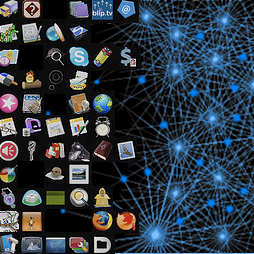I bought my first mobile quite late, at the end of the 90’s. It was a Siemens C35. It was quite popular at that time and one of the reasons was that it was small (it was also remarkably easy to use). People that bought their phones just one or two years before were now frowned upon for walking around with a so called ‘fridge‘. That’s what we called the huge phones made just a few years earlier.
In the following years phones continuously became smaller and thinner. There were exceptions » Read more…




